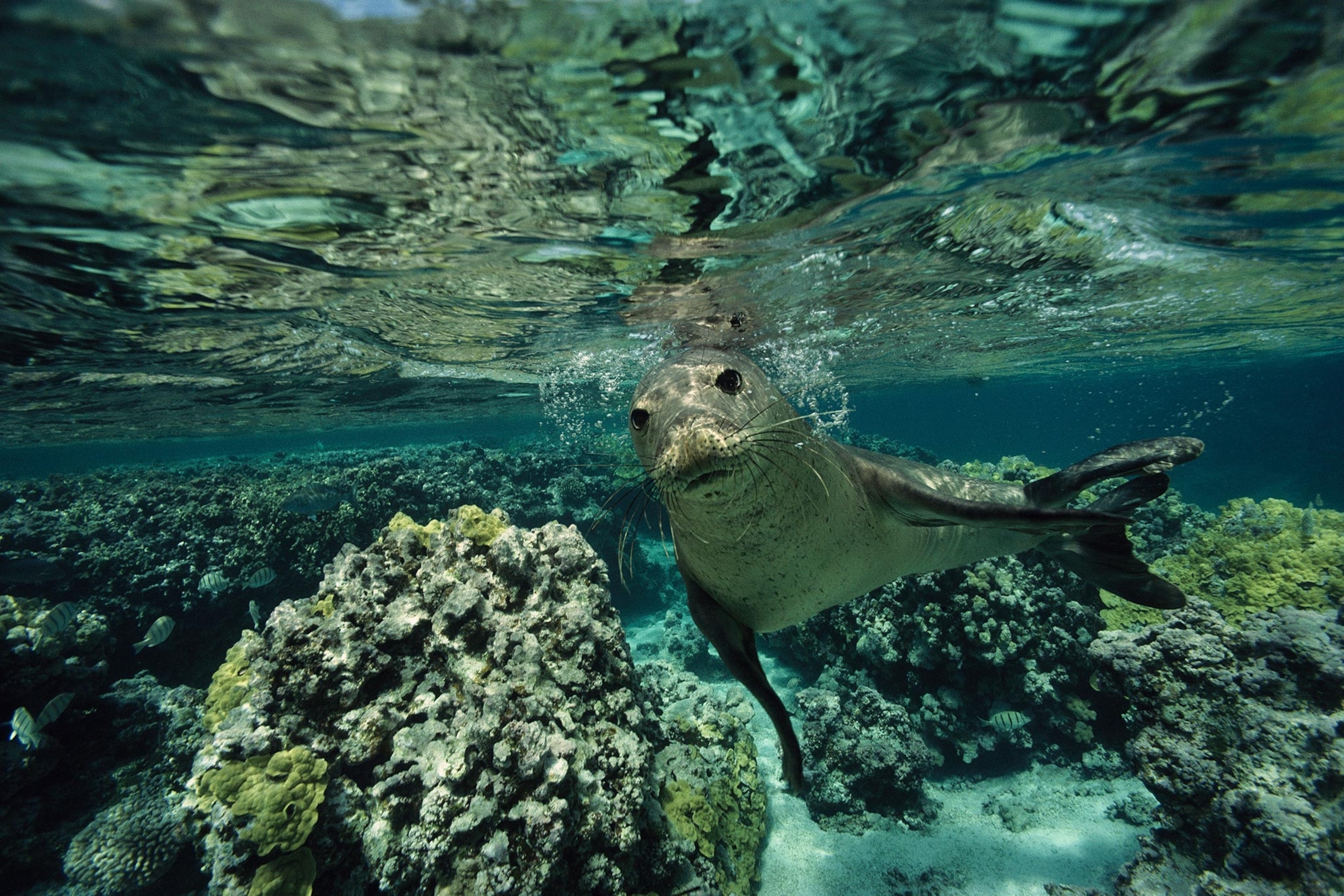
Man Accused of Punching a Seal
In this week’s crime blotter: a seal attack caught on video, a huge illegal logging bust, and an animal skull smuggling incident.
Here’s something disturbing: a beachgoer attacking a marine mammal. That’s exactly what a video documented on Tuesday night at Salt Pond Beach Park, on the Hawaiian island of Kauai.
In the recording, which went viral, a man slaps and punches a Hawaiian monk seal resting in shallow water. Investigators later identified the seal as RK30, a 17-year-old beach regular who was beloved by the community, according to the Honolulu Star Advertiser. And she was pregnant.
Monk seals are highly endangered. Endemic to Hawaii, only about a thousand remain there. Habitat destruction, accidental bycatch, and predation by sharks are some of the culprits.
Officials said RK30 survived the ugly incident without lasting injury. But the 19-year-old suspect was arrested, according to the Huffington Post, which reported that he faces up to five years in prison and a fine of up to $50,000 if convicted.
Some other wildlife crime busts, convictions, and confiscations around the world announced this past week:
LOOTING LOGGERS: Police arrested 19 people suspected of illegal logging in Peru’s Ucayali, an inland region located in the Amazon rain forest, Mongabay reports. The gang, dubbed by officials “the mafia of illegal logging,” is believed to have mainly targeted shihuahuaco, a tree species that’s home to macaws, toucans, and the harpy eagle. China, Mexico, and the U.S. were reportedly the chief destinations for the illegal timber harvested by the group.
SEAL STEALER: A judge sentenced a Southern California couple to home detention and their businesses to fines after they pleaded guilty to smuggling harp seal oil and honey bee royal jelly into the U.S. from China, says the Los Angeles Times. The husband-and-wife duo, who owned several dietary supplement import and distribution companies, smuggled four million capsules of harp seal oil into the U.S. in violation of the Marine Mammal Protection Act and falsely labeled the substance as fish oil. They also falsely described the honeybee product as aloe vera.
RHINO RENEGADES: Police in Kailali, in western Nepal, arrested six people in connection with their alleged involvement in smuggling rhino horns, according to the Himalayan Times. The cops nabbed the suspected poachers after receiving a tip-off from the New Delhi-based conservation organization Wild Animals Protection Society of India.
ANIMAL SKULLS: A judge in Portland, Oregon, sentenced two Malaysian nationals to smuggling wildlife into the U.S. after they pleaded guilty to the crime, the Associated Press reports. Three years ago, authorities found a helmeted hornbill mandible while searching an international package headed to Forest Grove, Oregon, and have since bought orangutan skulls, bear claws, a wild pig skull, and other parts from the duo’s online business.
SCALES AND SNAKES: Cops nabbed a Chinese businesswoman for allegedly attempting to transport four pangolins and four cobras out of Clark Freeport Zone, in Pampanga, Philippines, according to Interaksyon, a Filipino news site. Pangolins, which are endangered, are in demand for their meat and scales, which some mistakenly believe can cure cancer and other illnesses. As for cobras, people drink their blood, the publication notes.
TUSK TAKER: A man in Dundee, Scotland, pleaded guilty to stealing two elephant tusks, two ivory statues, and other items from a co-worker, the Courier reports. He’ll spend 14 months in prison. None of the pieces have been recovered.
This story was produced by National Geographic’s Special Investigations Unit, which focuses on wildlife crime and is made possible by grants from the BAND Foundation and the Woodtiger Fund. Read more stories from the SIU on Wildlife Watch. Send tips, feedback, and story ideas to ngwildlife@natgeo.com.





